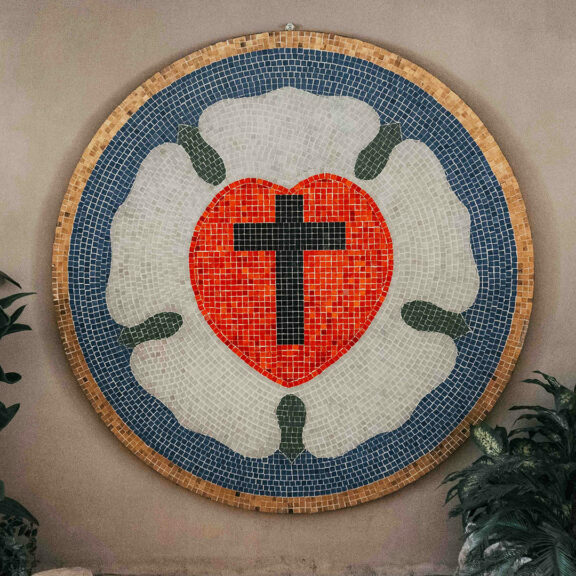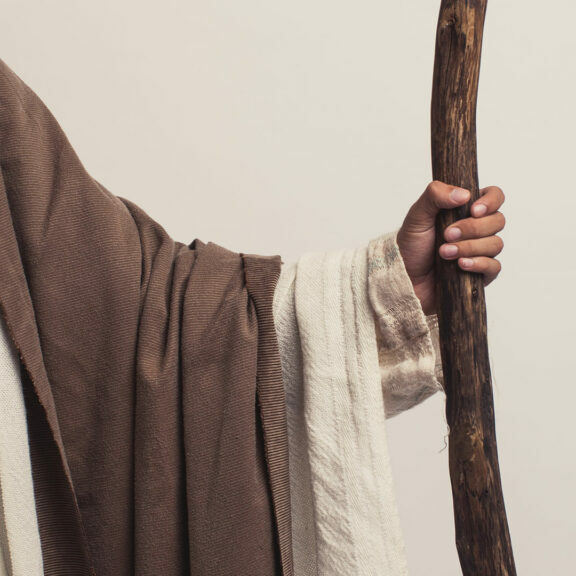October 29, 2023
Pastor John Hering
Psalm 46:1-11
Psalm 46:1-11
1 God is our refuge and strength,
an ever-present help in trouble.
2 Therefore we will not fear, though the earth give way
and the mountains fall into the heart of the sea,
3 though its waters roar and foam
and the mountains quake with their surging.
4 There is a river whose streams make glad the city of God,
the holy place where the Most High dwells.
5 God is within her, she will not fall;
God will help her at break of day.
6 Nations are in uproar, kingdoms fall;
he lifts his voice, the earth melts.
7 The Lord Almighty is with us;
the God of Jacob is our fortress.
8 Come and see what the Lord has done,
the desolations he has brought on the earth.
9 He makes wars cease
to the ends of the earth.
He breaks the bow and shatters the spear;
he burns the shields with fire.
10 He says, “Be still, and know that I am God;
I will be exalted among the nations,
I will be exalted in the earth.”
11 The Lord Almighty is with us;
the God of Jacob is our fortress.
The sound of hammers is echoing in my ears! It’s the memory of what happened on October 31st, almost 500 years ago. On this day in 1517, Dr. Martin Luther nailed ninety-five theses to the church door in Wittenberg, Germany, marking the birth of the Lutheran Reformation. So, we mark this day as special not to worship Martin Luther, or to poke fun and any denomination, but to give thanks to the Lord for the revival of the Gospel as proclaimed in God’s Word!
Can we really imagine what it would have been like to stand up against the Roman Catholic Church? Luther’s courage did not suddenly pop into his heart one night. His courage came from years of toil and labor in the Scriptures which alone gave him comfort for his conscience, by God’s grace the certainty of heaven being open for him, and by faith in God’s truth. It calls for a time of Steadfast Faith! Before us today is Psalm 46 which gave Luther great courage. Let us make it our very own so we can receive comfort in God’s Presence and confidence in God’s victory. We turn to Psalm 46 may the Holy Spirit inspire us to
Have Confidence in God Our Refuge
In God’s Presence
We can easily connect this Psalm to the events that took place during the reign of King Hezekiah of Judah around 700 B.C.. Hezekiah had initiated a spiritual reformation. You have to realize that idol worship was deeply ingrained in the lives of the people of his land. And fertility cults were a large part of this so called “worship.” Hezekiah rebuilt the walls of Jerusalem and spruced up the temple. He restored the system of sacrifices and even celebrated the Passover which had been neglected for decades.
Then came the test. Sennacherib’s mighty Assyrian army had overrun all the nations of the ancient Middle East, swept through the land of Canaan, pushed all the way to Mt. Zion, and started pounding on Jerusalem’s doors. Sennacherib followed the normal pattern for laying siege to an ancient city. He eliminated Hezekiah’s allies. He cut off Jerusalem’s water supply. He sent taunting letters to discredit Hezekiah, dishearten the people, and dishonored God. He was prepared to wait and watch Jerusalem crumble.
But inside those walls Hezekiah and the people of Jerusalem sang a song of confidence. Surrounded by Assyrians and anticipating a vicious attack, they were confident that the odds were on their side because the almighty God was on their side. “God is our refuge and strength and ever present help in trouble. Therefore we will not fear, though the earth give way and the mountains fall into the heart of the sea, though its water roar and foam and the mountains quake with their surging.” Sennacherib’s fighting force seemed to turn the world upside down and shake mountains. But the people of Jerusalem trusted in the Creator God who had made those mountains. Even if Jerusalem’s walls would crumble, God would still be their Refuge and strength, their Mighty Tower, the One who promised to come through with help at just the right time.
And come through he did – in a most unique way. The first thing God did was work through his appointed servant, King Hezekiah, by giving Hezekiah the brains and daring to pull off a seemingly impossible engineering feat. Hezekiah designed and had his men build a one 1,750 foot tunnel through layers of rock which ran under the city’s wall and connected it to a stream outside. So when Sennacherib cut off the water supply, the hidden stream helped the people in Jerusalem hold out. But what would happen during a dry season? And what if the Assyrians discovered the tunnel? The people of Jerusalem needed another source of hope and help. They had it. Listen! There is a river whose streams make glad the city of God, the holy place where the Most High dwells. God is within her; she will not fall. The confidence of the people of Jerusalem rested solely on God’s presence with his never-ending river of mercy and forgiveness.
The church during the time of Martin Luther had been surrounded by the devil and his lies. Martin Luther was not a rebel and never intended to be. He simply lived at a time when the organized church did not hold to God’s truth. But Luther studied the Bible, which became a river of support for his faith– that God is absolutely just and fair in condemning any and every sinner for any and every imperfection. God is also absolutely loving and forgives all sinners through Jesus, without any merit or worthiness on their part. That Reformation truth snowballed and rolled on throughout Europe.
Then came the test. For more than a decade after Luther had publicly stood up to the organized church’s doctrinal errors, he faced persistent opposition. He was threatened by Sennarcherib-like theologians who tried to discredit the good news and dishonor God. He was attacked publicly by church leaders with Assyrian-like vengeance. You might think that Luther would lose his strength.
But if Luther had to rely on his own strength, the battle would have been lost. He himself wrote: “With might of ours can naught be done; Soon were our loss effected.” But Luther did not rely on his own strength. Just like Hezekiah, he based his confidence on God’s powerful presence. God promised to be present and active through his Word. So Luther proclaimed God’s Word and let God do the work. Whether he stood before an emperor on a throne or children in a classroom, whether he debated his opponents face to face or with this pen, Luther was confident that the Word of God is living and active. Sharper than any double-edged sword, it penetrates even to dividing soul and spirit (Hebrews 4:12). Luther’s famous hymn which we will sing is based on this psalm and reflects his confidence in God’s powerful presence:
A mighty fortress is our God,
A trusty shield and weapon;
He helps us free
From every need
That has us now o’ertaken.
2,700 years after Hezekiah and 506 after Luther, our song is the same as theirs. Even when disasters and disease seem closer, more real, and more immanent, we can still sing a song of confidence because, no matter what, God is still our refuge and strength, an ever present help in trouble. Therefore we will not fear, though the earth give way and the mountains fall into the heart of the sea, though its waters roar and foam and the mountains quake with their surging. There is a river whose streams make glad the city of God, the holy place where the Most High dwells. God is within her, she will not fall; God will help her at break of day. Nations are in uproar, kingdoms fall; he lifts his voice the earth melts. The LORD of hosts is with us; the God of Jacob is our fortress.
Luther put it this way:
And do what they will –
Hate, steal, hurt or kill –
Let these all be gone,
Our victory is won;
The kingdom’s ours forever!
Have Confidence in God Our Refuge who is present with you! And give you Confidence
In God’s Victory
God had promised Hezekiah, “I will defend this city and save it for my sake” (2 Kings 19:34). God kept that promise, and Hezekiah witnessed it firsthand. The Bible tells us, “That night the angel of the LORD went out and put to death a hundred eighty five thousand men in the Assyrian camp” (2 Kings 19:35). No wonder the people of Judah could sing, “Come and see the works of the LORD, the desolations he has brought on the earth; he makes wars cease to the ends of the earth; he breaks the bow and shatters the spear; he burns the shields with fire.”
Yet God’s greatest victory wasn’t victory over the Assyrians. After about 100 years of peace the kings of Judah fell away from God. The Lord finally handed the Israelites over to the Babylonians. But here’s the amazing part of the message of God in the Old Testament Scriptures: God still kept his promise to send a champion who came to defeat an enemy far scarier and far more powerful than the Assyrians and Babylonians. Who is this champion?
You ask, “Who is this?
Jesus Christ it is,
The almighty Lord.
And there’s no other God.
He holds the field forever.
The organized church of Luther’s day had armies, money, and power. You might think they would squash Luther like a bug. They tried! But Luther sang this song of confidence in God’s victory, not a victory which would wipe out his opponents, but Christ’s victory over Satan and sin. Luther cherished that victory. Were there days when he was scared? Yes! Were there days when he was ready to give up? Yes! Were there days when he thought the devil himself was creeping on his soul? Yes! There’s a story that one day he even whipped his ink well at the wall, aiming at Satan. But he always came back to this psalm, this song of confidence in God’s victory, and he sang:
Tho’ devils all the world should fill,
All eager to devour us,
We tremble not, we fear no ill;
They shall not overpow’r us.
This world’s prince may stillScowl fierce as he will,
He can harm us none.
He’s judged;
The deed is done.
One little word can fell him.
And that little word is Jesus.
2,700 years after Hezekiah and 506 years after Luther, our song is the same as theirs. Because Jesus’ victory is ours, God says, “Be still and know that I am God; I will be exalted among the nations, I will be exalted in the earth.” That’s why we sing this song of confidence. No matter who says you’re nuts for believing the Bible is true, no matter who makes fun of your faith, know that the LORD is God. He will be exalted. He gives us the victory through our Lord Jesus Christ.
That victory won by Jesus tells us something about God. Our gracious God actually cares about us. Sure we can think of ways in which we Christians are oppressed, even in this land of plenty – and it’s still a land of plenty in spite of the current economic woes. It’s no fun getting mocked for being a faithful Christian or feeling like the culture around us flowing in one direction, and we’re always paddling upstream with a tiny little paddle. But who are we to say we’re any better than the Israelites during and after King Hezekiah’s reign? Who are we to say we’re immune to the pangs of conscience that troubled Martin Luther? Because if there’s one thing Martin Luther learned as a child from the organized church was this – “God is holy, and I’m not. I’m a lost and condemned sinner.” But along came the message of the Holy Scriptures like a cool spring of water gushing onto the tongue of a dehydrated desert wanderer: Jesus tackled Satan, dragged him away from being the big barrier to the gates of heaven, and then gave us his victory.
Conclusion: I don’t plan to get out my hammer today and post anything on a church door. But I do know my conscience hammers away when my conscience bothers me, when your guilt keeps shouting, when my guilt keeps shouting, “This one is not forgivable!” then Jesus shouts back, “Conscience, be quiet! You, my child, are forgiven, and that’s true whether you feel like it or not. I won the victory, and you are on my winning team!” That’s why we sing this song of confidence. That’s what our Reformation celebration is all about.
One Sunday to mark the Reformation doesn’t seem like enough time to praise God for his Reformation truths. So today, next Sunday, and every day, sing with the psalmist, with Hezekiah, and with Luther this great song of confidence, “The LORD of hosts is with us; the God of Jacob is our fortress.” Amen.



